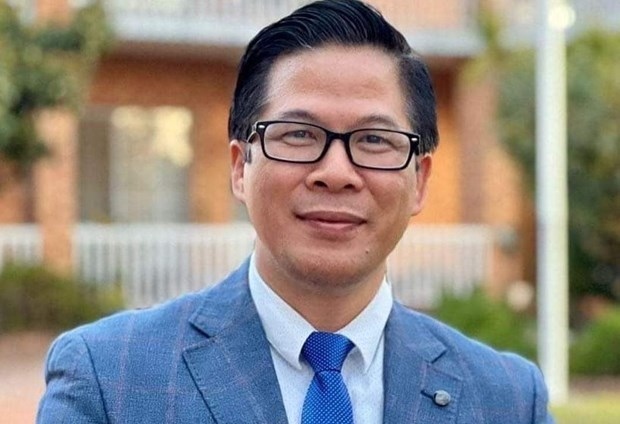
The promotion of the "bamboo diplomacy" demonstrates Vietnam's confidence in foreign affairs, and serves the goal of ensuring national interests under all circumstances and at all times, said Dr. Nguyen Hong Hai, a researcher at the Centre for Policy Futures under the University of Queensland in Australia.

In a recent interview granted to the Vietnam News Agency, Hai stressed that the “bamboo diplomacy” is also the diplomatic philosophy of Vietnam.
The idea of “bamboo diplomacy” was first coined by the leader of the Communist Party of Vietnam, Nguyen Phu Trong, at the 29th diplomacy conference in 2016, during which he highlighted the importance of diplomacy in maintaining peace, preventing conflict, and fostering international cooperation in the context of the rapidly changing world.
According to Dr. Hai, in order to coin the idea, the Party leader deeply analysed the characteristics of "Vietnamese bamboo".
This diplomacy always upholds the spirit of tolerance, peace and humanity in behaviour; and flexibility in strategy in order to defence the nation and ensure national security for people, Hai said.
It also reflects the nation's resilience and solidarity tradition in maintaining its independence and resisting foreign invaders, Hai said, adding that although tolerant and advocating reconciliation, Vietnam always remains steadfast and resolute in the principle of fighting against foreign invaders with the spirit of "rather sacrificing everything than losing the country and returning to slavery”.
According to Hai, this diplomacy also features Ho Chi Minh's ideology and diplomatic style, which is a combination between the nation's tradition and culture, the quintessence of humanity, and the practice of his revolutionary career.
In foreign affairs, the leader always considered the interests of the nation and people as the core issue, and did everything for the sake of the nation, Hai stressed, adding that to do this, it is necessary to strictly follow the principle “taking the unchanging to deal with the changing" – which is also a feature of the bamboo diplomacy.
Hai also mentioned Vietnam’s development and international position since the Communist Party of Vietnam carried out the Doi Moi (renewal) process, highlighting the great contributions of the diplomatic work to the cause.
It can be seen that Vietnam's diplomacy from history to modernity and in practice today has reflected these characteristics. In other words, Vietnam’s modern diplomacy embodies the characteristics of Vietnamese bamboo, Hai stressed.
He cited the success of the vaccine diplomacy of Vietnam in the fight against the COVID-19 pandemic, and the country’s behaviour amidst instability and fierce competition between major powers in the region and the world to spotlight the bamboo diplomacy which has so far contributed to maintaining independence, sovereignty and territorial integrity; creating a peaceful and favourable environment for the country’s development; and at the same ensuring security, peace, and development in the region and the world.
Vietnam has built an outstanding and unique school in foreign relations and diplomacy, based on the creative application of the basic principles of Marxism-Leninism, the continuation of tradition and national characteristics of foreign relations, diplomacy and culture, and the conscious selection of the strengths of global culture and the progressive philosophies of the time.
Vietnam’s “bamboo diplomacy” has been a hallmark of its engagement with the international community, stated Former Governor-General of Australia Peter Cosgroven in an interview granted to the Vietnam News Agency (VNA) on achievements of the “bamboo diplomacy”.
Bình luận
Bình luận của bạn sẽ được xét duyệt trước khi đăng